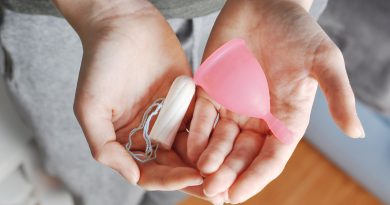Phthalates are more ubiquitous than was previously known – and are commonly found in menstrual products
Adapted from: ‘New Studies Find Phthalates in Tampons, Pads’ by Alex Scranton, Director of Science and Research for Women’s Voices for the Earth. Publication available at: https://www.womensvoices.org/2020/02/28/wait-what-now-there-are-phthalates-in-tampons-and-pads-too/
Phthalates are plasticizer chemicals found in a variety of products designed for daily use.
Exposure to this class of chemicals has been associated with several adverse health effects; due to the potential health impacts of phthalates, organizations such as Women’s Voices for the Earth (WVE) have campaigned for tighter control of their usage in everyday products known to contain the compounds. While progress has been made on this front, new research has shown that phthalates are more ubiquitous than was previously known – and are commonly found in a variety of menstrual products.
Recent studies examining the prevalence of phthalates in menstrual products internationally found that the compounds were present in the vast majority of these products. While it is likely that product manufacturers were previously aware of the composition of these products, lax regulations in the industry have led to a lack of ingredient disclosure and corresponding public awareness.
Although it is difficult to isolate the specific health effects of phthalate exposure from menstrual products alone, it has been estimated that tampon use can contribute as much as 15% of menstruators’ total exposure to the compounds. Thus, their elimination from feminine hygiene products could greatly reduce the concentration of the chemicals that end up in women’s bodies.
To create change in the industry, action items include advocating for research funding into menstrual product composition and health implications, voicing concerns to manufacturers over the contents of their products, and spreading awareness of the issues through social networks.



